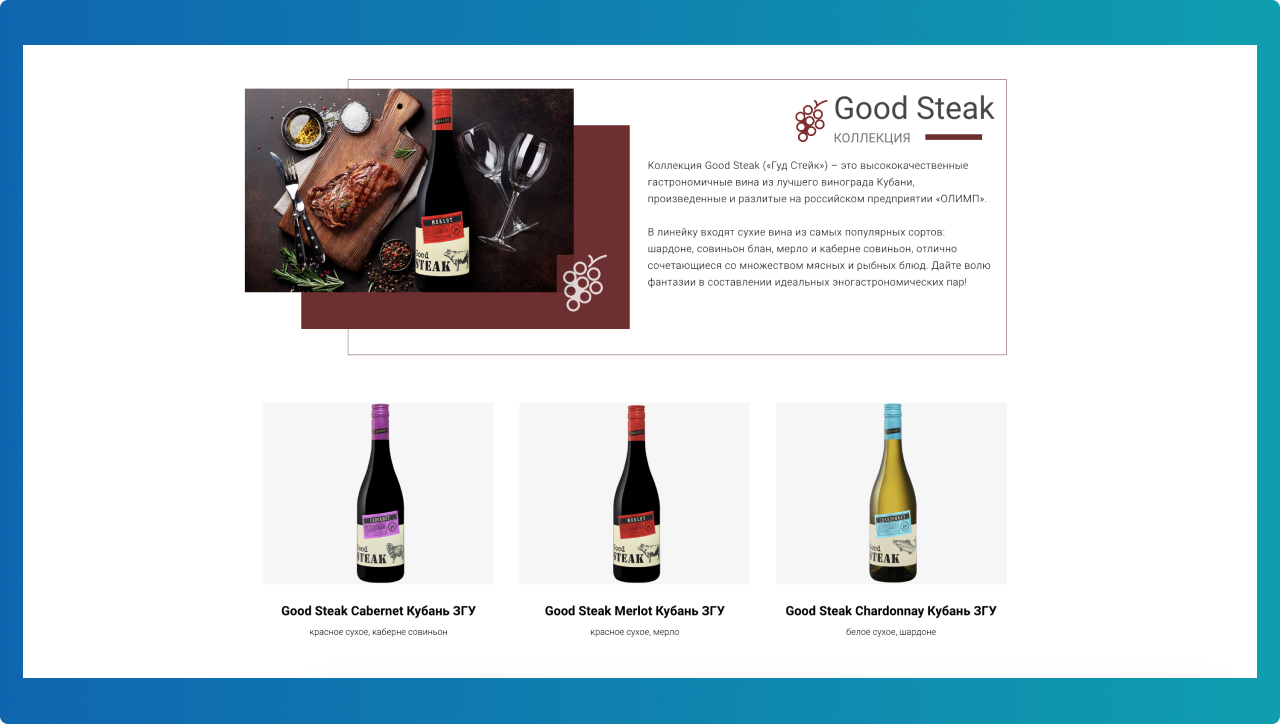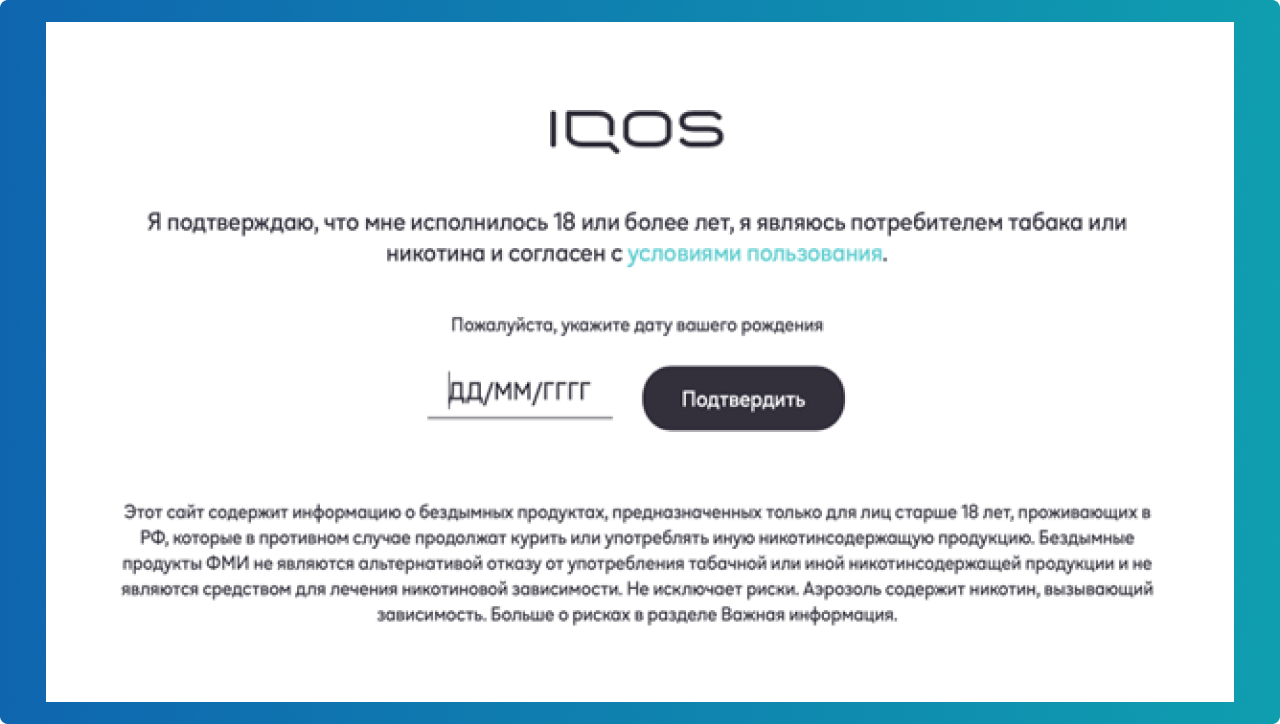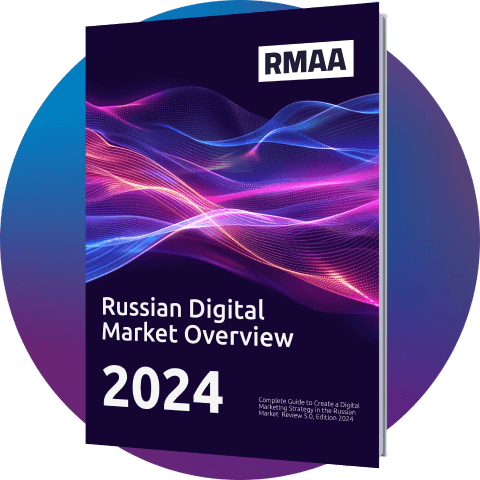Blog about successful marketing strategies in russia
Dark Marketing in Russia. How to Properly Advertise Alcohol and Tobacco Products on the Market


DIGITAL MARKETING
Share this Post
The 2012 amendments to the Federal Law 'On Advertising' have made Russian legislation one of the strictest in the world when it comes to alcohol and tobacco advertising. While some countries allow some forms of ads, Russia has taken a firm stance on this issue. It has either completely prohibited or significantly restricted the promotion of these product categories through traditional media, including TV, print, and radio. However, this does not mean that the task is impossible. There are still ways to advertise these product categories. They are mainly associated with digital tools. We must warn you in advance that it is officially forbidden to advertise alcoholic (not counting beer and beer drinks) and tobacco products on the Russian Internet.
RMAA experts have created a comprehensive guide to understanding the nuances of dark marketing.
Alcohol Advertising. Prohibitions and Possible Alternatives of Promotion
Article 21 of the Federal Law 'On Advertising' is the definitive source of information on the requirements for the promotion of alcoholic beverages in Russia. From this, the following conclusions can be drawn.
Firstly, the permissible distribution channels will differ depending on the type of product.
- Beer and beverages based on it (ethyl alcohol content of 0.5% or more by volume of the finished product) may be advertised in retail outlets, on TV and radio during championships and sports competitions (except for children's events), in closed groups/channels in social networks of interest with an age marker of 18+ (for example, 'Wine Lovers', a private VK group) and on official pages of company websites on the Internet.
- Wine and champagne produced in Russia (ethyl alcohol content of 0.5% or more by volume of the finished product), as well as beer, may be promoted in offline outlets, in closed groups/channels in social networks of interest with the age marker 18+, and on official company websites. In addition, the legislation allows advertising in print media (except for magazine covers, front and back pages of newspapers), on TV and radio during the broadcasting period from 11 p.m. to 7 a.m. (except live broadcasts and recordings of youth sports competitions), as well as event marketing related to food exhibitions in the restaurant sector.
- Strong alcohol (more than 5% ethyl alcohol), wine, and champagne from other countries are subject to more restrictions than other products in the alcohol segment. They can be advertised like any other, offline at retail outlets, in closed groups/channels on social networks of interest with an 18+ age rating, and on the pages of official brand websites. However, TV, print ads, and OOH are not available in this case. There are also a number of nuances to be aware of in relation to the official sites of the manufacturers. This means that the site itself and its content are not advertising, but banners and pop-ups on it are considered to be prohibited advertising material.
Secondly, alcohol advertising must meet certain content requirements. As a minimum, they must include a warning about the harmfulness of alcohol as a form of physical and psychological dependence (approximately 10% of the total area of the advertisement or broadcast). At the same time, it is strictly forbidden to associate the consumption of alcoholic beverages with any kind of success or recognition, to condemn healthy lifestyles, to assert the harmlessness of alcohol, to appeal to minors, or to use illustrated images of people or animals. In addition to all of the above, you should remember the basic requirements for advertising in general. That is, it must not incite violence, make false comparisons ('first', 'best', etc., which have no reasonable basis for such status), deceive consumers, contain obscene images, or foreign words without translation, or humiliate competitors. The fine for violating one of these clauses ranges from 4,000 RUB to 20,000 RUB for sole proprietors and from 100,000 RUB to 500,000 RUB for companies.
Thirdly, let us once again single out the advertising of alcoholic beverages on the Internet. Officially, it is banned, i.e. no paid advertising tools (paid search, paid social, programmatic, etc.) can be launched.
What to do in this situation?
Alternative ways to promote alcohol
In the limited conditions of advertising alcohol under Russian legislation, attention should be paid to the following promotional opportunities.
Advertising a range of soft drinks
While not designed to promote beverages, this option is excellent for brand recall. Large brewing companies use it to promote soft beer in their product lines. Animated characters and people are permitted in advertisements for drinks containing less than 0.5 percent of ethyl alcohol, as long as the positioning of non-alcoholic products is clearly defined. Otherwise, the ad will not meet the legal standards.
‘Baltika Non-Alcoholic’ beer is the official drink of the Kontinental Hockey League, as evidenced by a post in the brand's eponymous VK blog. At the same time, the page is open, as the title and content speak exclusively about the brand's non-alcoholic products.
Event Sponsorship
It made a comeback after the pandemic, with people turning to offline experiences. In Russia, alcohol brands are permitted to sponsor festivals and concerts in exchange for advertising. The brand logo is placed on the stage, on posters, and on tickets.
T-Fest concert poster in VK with Tuborg brand logo
Collaboration with restaurants, bars, and cafes
This is about branding the venue, organizing promotional events, product sampling, and creating a special cocktail menu for the alcoholic brand. At the same time, such collaborations can be posted on the venue's social networks without the alcohol brand's account being marked. The presence of alcoholic products will be highlighted.
A post dedicated to Aigner wine, ‘Grunello’ Gruner Veltliner in the Moscow Wine Gastrobar Instagram account, with a recommendation on the venue's menu
Brand website and social media accounts
As we have already stated above, it is important to understand the nuances of this issue. An alcohol brand in Russia can have its own website with products, but it must inform clients about its goods and cannot impose a particular product with pop-ups and banners. Paid promotion in search engines is prohibited. However, no one canceled 'organic' ads. The site will rank highly in search engines thanks to its content and high user engagement.

The Good Steak collection wine catalog on the Olymp Winery website
Briefly about running social networks for alcohol brands in Russia. This format is acceptable, but with nuances and depending on the platform. Again, the main focus here should be on native content.
For example, in VK and Odnoklassniki it can be only a closed public with the marker ‘18+’, in which it is inadmissible to publish content with direct product advertising, but it is possible to inform users about alcohol in general. That is, use memes, humor, informative posts, etc.
In Telegram, the situation will be a bit simpler - the channel must be labeled with the age restriction ‘18+’, but available to all users of the messenger. Advertising of a specific product is prohibited, but images and informational content can be published without restrictions. Plus, you can hold contests.
Announcement of the contest in the RussianStandardVodka Telegram channel. To win a prize, you need to subscribe to the channel and leave a comment with ‘Participate’ on the publication.
Instagram* does not work without a VPN in Russia and is officially banned. Therefore, it is evident that no Russian-speaking accounts producing alcoholic beverages have been noticed. However, this format is acceptable. It is important to note that the brand will not be able to rely on the support of bloggers in promoting their products due to the Russian law on Internet advertising labeling. This law obliges bloggers to specify the product category that they are advertising. Conversely, if there are active subscribers, there is a clear opportunity to use UGC content. Read our special article for more information about this tool. This format also carries certain risks, the full extent of which is difficult to predict in advance.
Instagram* post of Russian user @bokarevamari
Influencer Marketing
This is undoubtedly one of the most promising formats for promoting alcoholic beverages, despite the inevitable 'buts'. To grasp the specifics, we shall go back a few years.
Until mid-2022, bloggers were not considered official media representatives under the law. They could freely advertise alcoholic products. At that time, large alcohol brands frequently formed promotional partnerships with opinion leaders. This was especially the case on YouTube.
By the end of 2021, Yoloco Influencer Marketing Platform specialists had calculated that Russian YouTube bloggers were earning approximately 175 million rubles a year from alcohol brands. The study revealed that the top companies spending the most on such promotions were William Lawson's, Dewars, Belenkaya, Bacardi, and Martini. Dewars whisky was mentioned in 15 commercials over the year featuring Leonid Parfyonov, Ksenia Sobchak, Artemy Lebedev, and Oblomoff. William Lawson's products were featured by the popular humourist Satyr. Belenkaya vodka was integrated into the video content of Egor Krid, Timati, Feduk, and the Cream Soda duet, as well as the Comment Out show created by the Chicken Curry channel. Furthermore, the latter conducted integrations with Bacardi (6 integrations during the year) and Arkhangelskaya brand products. Despite the risks from legislation, the number of such interactions grew not only on YouTube. Alcohol brands invested in special projects and promotions on the Telegram channels of media personalities, budgeting for potential risks and fines. Nevertheless, the income from advertising alcoholic beverages through influencer marketing still exceeded the costs of implementing the campaigns themselves.
Promotion of alcoholic products by Koktebel brand in the telegram channel of popular TV presenter Ksenia Sobchak (August 2022)
Everything would have been perfectly legal if it hadn't been for the new internet advertising labeling law that came into force in September 2022. The law is clear: all market participants, including influencers, must report their advertising activities to the Russian authorities (FAS). This applies even when advertising on Instagram*, despite the official ban of the network in Russia. Read more about the labeling process in detail here.
In other words, while before this law bloggers were exempt from reporting their activities with brands, now they are obliged to provide it, being accountable for every advertising creative. This law has ended direct alcohol advertising by influencers. However, it has not been completely eliminated. Instead, it has been modified.
Alcohol advertising is defined as any information that draws attention to an alcoholic beverage and generates or maintains interest in it. Advertising must be addressed to an indefinite circle of persons and may be distributed in any way. If a message or creative contains the name of an alcoholic beverage, it is advertising. If the product name is not visible, it is not advertising, even if you can guess what product we are talking about just by looking at the shape of the bottle or the color scheme. Influencers have new ways to promote alcoholic beverages thanks to their adoption of the latter.
The first option is native advertising without mentioning the brand or accounts on social networks. In this case, the visual part of the creative will not feature alcoholic beverages at all, and the text part will not mention them either. In this case, the law is clear: no labeling is required, as it is not considered direct advertising. This method is risky. Not many bloggers will agree to do it.
Instagram* post by famous Russian blogger Alexey Zhidkovsky, featuring Veuve Clicquot champagne without mentioning the brand name
The second option with native advertising has a narrower approach and is related to publications in Telegram channels dedicated to alcohol topics. We emphasize that these are not channels of brands and retail chains. We are talking about the author and thematic channels related to alcohol. Placing direct advertising with the call to buy the product will also be prohibited here, but native posts with reviews and informational materials are allowed. The downside is that there are few such channels, so the possibility of large coverage is minimal.
Post review of Loch Lomond Distillery Edition 4 in a whisky-themed Telegram channel with a link to the site and a mention of alcohol harm
The third option is Dzen channels, where alcohol brands can be found in reviews by retail chains and also by expert authors. The latter can hardly be called opinion leaders with large coverage, but the video content of retail chains is literally filled with cocktail recipes.
Thematic video of making a cocktail with Canada House whisky in the Dzen channel of Aromatic World alcohol retail chain
Finally, the fourth option is hidden product placement on YouTube. This is a format where alcoholic products are present in the frame, but the brand is not visible and the brand name is not mentioned in the main content of the video. This idea can and should be integrated into YouTube shows with many participants, which are gaining popularity in Russia. There is no doubt that the product will be noticed even without direct advertising.
In the YouTube Stand-Up Club #1 show (1.46M subscribers), the participants drink Dewars White Label whiskey while talking about alcohol. The brand logo is absent in the video, yet the mention of the whisky-producing country and the slogan make it evident what the specific drink is being discussed.
TOP YouTube Show in Russia
|
|
|
|
|
|
|
|
|
|
|
|
|
|
|
|
|
|
|
|
|
|
|
|
|
|
|
|
|
|
|
|
|
|
|
|
|
|
|
|
|
|
|
|
In other words, promoting alcoholic beverages in Russia is very possible, but it is associated with certain risks. The use of direct advertising to describe the advantages of the product is simply not an option. However, with the right native strategies and influencer marketing, success is inevitable. As an agency with vast experience in the Russian market, we strongly recommend focusing on YouTube, Telegram, and Instagram first. RMAA has its own databases of bloggers on various social networks, guaranteeing our clients faster decisions.
There are Few Chances, but They Still Exist. Advertising of Tobacco Products in Russia
The promotion of tobacco-containing products has much fewer channels and available advertising means compared to the alcohol segment. While the latter has chances for campaigns in traditional channels (TV, media, OOH partially) and specific opportunities for integration with influencers, for tobacco brands, tobacco products, etc., all this will be prohibited.
According to Article 7 of the Federal Law “On Advertising” in Russia, it is not allowed to advertise cigarettes, tobacco, cigars, smoking pipes, hookahs, cigarette paper, lighters, or electronic cigarettes. That is, in general, all goods related to this segment. At the same time, there are no exceptions in the legislation, as, for example, for advertising non-alcoholic beer. Plus, the promotion of tobacco products in Russia is regulated by Article 16 of Law No. 15-FZ, from which certain conclusions can be drawn.
The following activities are prohibited:
-
giving discounts, and coupons for tobacco products;
-
give or give away tobacco products for free;
-
imitate tobacco products when creating other products (e.g., gum in the form of a cigarette, etc.);
-
misuse the brand logo (e.g., the tobacco brand logo cannot be displayed on shisha charcoal packs);
-
organize contests and lotteries, if the purchase of tobacco products is a mandatory part of the participation;
-
demonstrate the smoking process in children's films, programs, and theatrical performances;
-
conduct various offline activities to encourage audiences to purchase tobacco products;
-
involve a tobacco brand as a sponsor and use their brand identity as part of their charity work.
In short, the promotion options are quite few. However, there are still available formats of integration that are not directly prohibited by law. It is important to note that such advertising carries certain risks. Advertisers must be prepared in advance for fines and factor these amounts into the advertising budget. Article 14.2.1 of the Administrative Offenses Code of the Russian Federation states that advertising tobacco, tobacco products, smoking accessories, or any combination thereof carries a fine of between 10,000 and 25,000 rubles for sole proprietors and 150,000 to 600,000 rubles for companies.
Anyway, there are ways to promote these products that are safe, even if they are not 100% risk-free.
Offline promotion at the sales points
This format is possible thanks to the following mechanics. For example, a salesperson is authorized to advise customers on types of tobacco, ask questions about it as part of market research, and ask for contact information. This tool allows us to inform the audience interested in the product immediately before making a purchase.
Content publication on the official website or social media
It means keeping customers up to date with the latest products from the company. Put simply, visitors to the tobacco brand website (such as IQOS) or users in a hookah group can be shown a product catalog without being prompted to purchase a specific item.
Product review in the vape shop retail chain SmokePar Telegram channel
This will no longer be considered an advertisement as there is no promotional purpose to this content. However, any pop-up banner on the site is deemed an advertisement and is therefore prohibited. Furthermore, the age limit "18+" and a warning about the harm of smoking as a form of physical and psychological addiction must be included in the design of resources (note: 10% of the total area of the ad).

Visiting the IQOS brand website is not possible without filling out the date of birth form, as users under 18 years of age are not allowed to use the site's resources
Newsletters and SMS
You can use additional channels to inform your customers, including mail, SMS, and messengers. However, there are two conditions that must be met: the content of the mailing must be free of direct advertising (for example, a link to an updated catalog or a new brand in the line) and the customer must have given consent to receive such data, and the brand must be able to prove it. IQOS uses email and asks users for approval before sending materials.
A few words about Influencer Marketing
The law on Internet advertising labeling made it impossible for tobacco brands and bloggers to collaborate on advertising in Russia as of 2022. The most cost-effective options are Twitch streams with native formats that don't mention the brand and author's YouTube vlogs.
It is important to note that in the first case, the stream will be automatically deleted from the platform after a certain time. The second variant with YouTube, is undoubtedly a hidden product placement, where, for example, a pack of cigarettes will be present on the screen, but the brand logo will not be visible. The video's main character can smoke during the video. It is also important to understand that not many bloggers will agree to this format. Smoking cigarettes in Russia is basically not cool now because of all the hype around healthy living and e-cigarettes popularisation.
Another option is a video review without advertising on the channel, which is ideal for demonstrating vapes but not cigarettes. A vape is, after all, an electronic device and can be considered a "gadget."
Vape reviews on TPL tv's YouTube channel
As we can see, the situation with advertising tobacco products on the Russian market is much more complicated than with other goods subject to government restrictions. However, there are permissible options, although they also involve risks due to the vague wording of the law. In addition, when choosing influencer marketing, it is necessary to take into account the age of the blogger's target audience and to pay close attention to the type of content published, as it should be informative rather than promotional.
Let's summarize
Dark marketing focused on alcohol and nicotine products (and everything related to them) requires the advertiser to have a clear understanding of how to operate within the framework of Russian law. Entrust this task to the RMAA. We are ready to offer you the most optimal promotional strategies with minimal risks. To contact our manager, please fill in the contact form.
*Meta's activities are banned on the territory of the Russian Federation
Join 2,000+
of your Peers!
You will be the first to know about Russian marketing insights, news and updates from our agency. Stay tuned!
Get our latest articles delivered to your email inbox and get our exclusive White Paper
"Digital Marketing in Russia. Finding your customers on the internet"
for FREE!
Russian Digital Market Overview
Strategic Insights into Russian Digital Marketing Landscape

Ready to partner with the specialists in Russian marketing and advertising?
About the Author
Digital Strategist. Head of one of the project groups at RMAA. Maria started her journey in digital marketing in 2009.
Join 2,000+ of your Peers!
Get our latest articles delivered to your email inbox and get our exclusive White Paper "Digital Marketing in Russia. Finding your customers on the internet" for FREE!
You will be the first to know about Russian marketing insights,
news and updates from our agency.
Stay tuned!
We're updating our website's design step by step, so some pages may look different. Thank you for your understanding.
Got it














